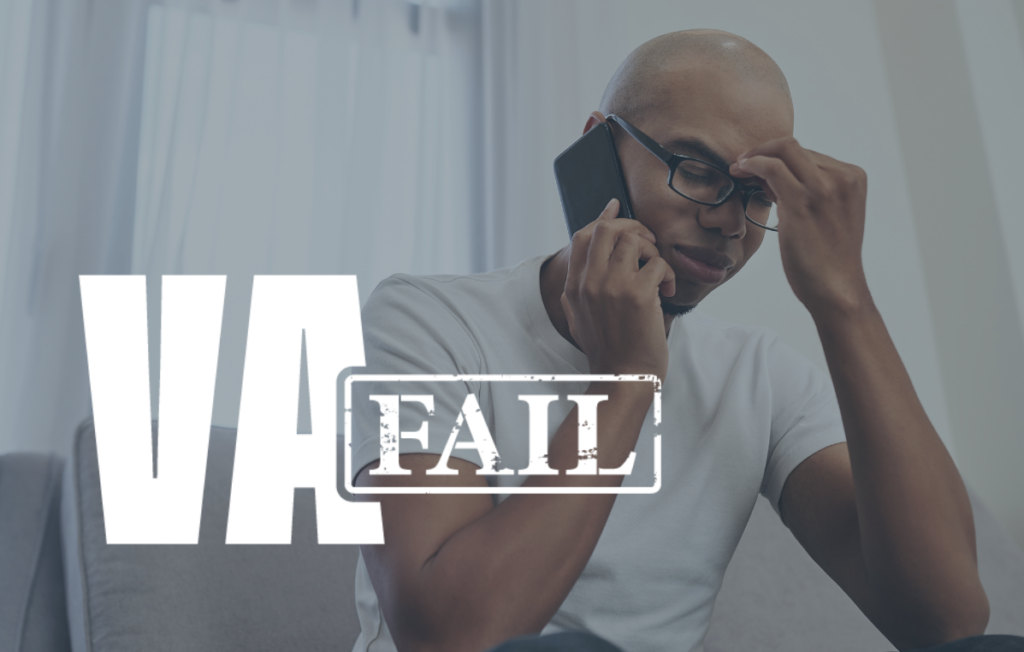
For more than 15 years, the federal government’s Veterans Crisis Line has been a resource for former military members who need an immediate connection to specially trained mental health responders. While the resource has helped many veterans, it isn’t perfect. And, like many top-down programs with no competition, it can take months or years to address systemic problems.
A San Antonio veteran died as a result of this inertia, USA Today reported.
The VA Office of the Inspector General investigated the events leading up to that death and found hotline administrators made significant mistakes. The OIG also found widespread problems with text message retention and with VA continuing to contact family members after the veteran’s death.
Its report came after an investigation in 2017 found the hotline sent about one-third of its calls to voicemail or backup call centers.
San Antonio veteran died by suicide after contacting hotline
At 10:14 p.m. in early 2021, a 31-year-old veteran contacted the Veterans Crisis Line, saying he was suicidal. The veteran and the hotline staff member corresponded for more than an hour, until 11:29 p.m. The conversation, which included more than 80 messages, ended when the veteran promised to contact a family member, go to bed, and wait for follow up the next day.
Instead, he took his own life at approximately 11:40 p.m. The OIG says the hotline responder failed to confirm follow through with the safety plan, as protocol requires.
During the text conversation, the hotline responder noted the veteran was preparing to take his own life with a plan in place to do so. While that fact should have been a red flag to fully investigate the veteran’s mental health history, the OIG says the responder did not adequately investigate the veteran’s history of post-traumatic stress disorder or history of alcohol use. The autopsy report indicated the patient may have had impaired judgment due to alcohol use.
The responder “did not address the patient’s likely suicidal preparatory behavior” the OIG report says. “[The] failure to clarify the patient’s engagement in suicidal preparatory behavior likely contributed to … [the] underestimation of the patient’s imminent suicide risk.”
The OIG report says the responder also failed to adequately document communication with the veteran and did not conduct a “root cause” analysis of the incident.
VA Inspector General Michael Missal told USA Today Veterans Crisis Line staff “failed to help a veteran in need.”
Hotline staff failures continued for days after suicide
Even though hotline staff learned of the death within days, they failed to immediately notify the VA of the death. And to make matters worse, the VA itself did not log the veteran’s death, resulting in the family getting calls from the VA “as if the veteran were still alive exacerbating the family’s grief,” USA Today reported.
Ten days after the patient’s death, a hotline responder documented that a family contacted the Veterans Crisis line to express “concerns and anger toward” the hotline.
USA Today suggested hotline staff may have tried to cover up these problems. “The investigation further revealed that the hotline’s director of quality and training may have coached the responder after the incident, potentially compromising the staffer’s ‘candidness’ during reviews of what happened,” the newspaper reported. “In an instant message to the responder ahead of an inspector general interview, the director said the ‘main points are to only answer the question asked — don’t volunteer anything extra.’”
A history of ignoring text messages
The mishandling of the San Antonio veteran’s case is not an isolated problem. The OIG report also reveals procedural problems at the crisis line, “including the silent monitoring of calls and the issues with saving text messages with veterans,” explained USA Today.
According to the OIG, the Veterans Crisis Line began receiving text messages in 2011, but it took more than 10 years for the hotline to implement a plan to retain and log those messages. That failure prevents responders from having a fuller look at a veteran’s medical history.
The OIG says, “The lack of text retention prevented leaders from conducting comprehensive quality assurance reviews of text contact management,” including in the case of the veteran from San Antonio.
After the OIG’s report was released, the VA pledged to provide hotline responders with additional training. The supervisor involved in the San Antonio veteran’s case also was transferred from an oversight position.
But these moves will not completely solve the problems.
Veterans need immediate, reliable mental health resources
USA Today reported calls to the Veterans Crisis Line increased 12.5% between 2021 and 2022. An average of 17 veterans per day are losing their lives to suicide, with many more struggling with substance use and mental health.
Mental health care is a life and death issue. To adequately address this demand, veterans need access to community-based solutions that can provide immediate and quality help when a crisis arises. Veterans also need an accountable VA that operates under the most effective protocols.
Read more stories about VA failures.
If you or someone you know is struggling with mental health issues, learn more about suicide prevention resources from our sister organization, Concerned Veterans for America Foundation.